Guide to Munich in Autumn
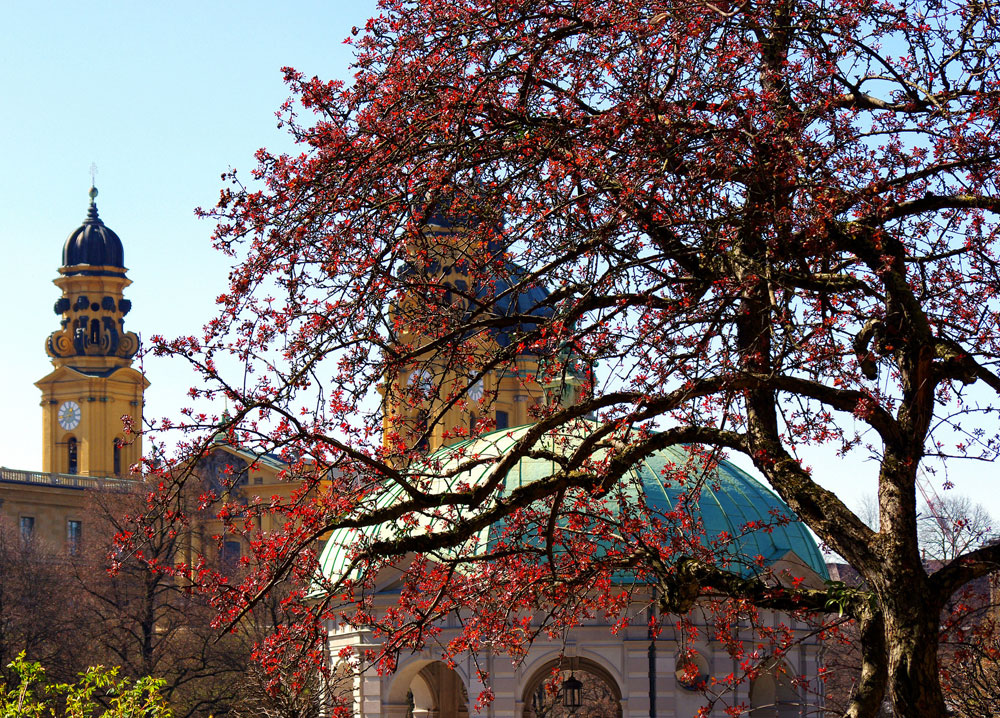
Beer has been part of Munich life for at least seven centuries and the brewing tradition is very much alive and kicking today. Nowhere else in Europe has a beer tradition quite like the Bavarian capital with six mammoth breweries pumping out world-class suds to hundreds of beer gardens and beer halls. Although the city is best known for Oktoberfest, there’s a lot more to Munich than just beer and pork knuckle. Bavaria’s capital is an eccentric city with strange quirks and an extensive, fascinating heritage.
Autumn is a perfect time to explore Munich – not too hot and crowded but not too cold yet. And there are a few festivals that are brewing in the Fall. We’ve put together a few of our favourite experiences here to hope you plan your German holiday.
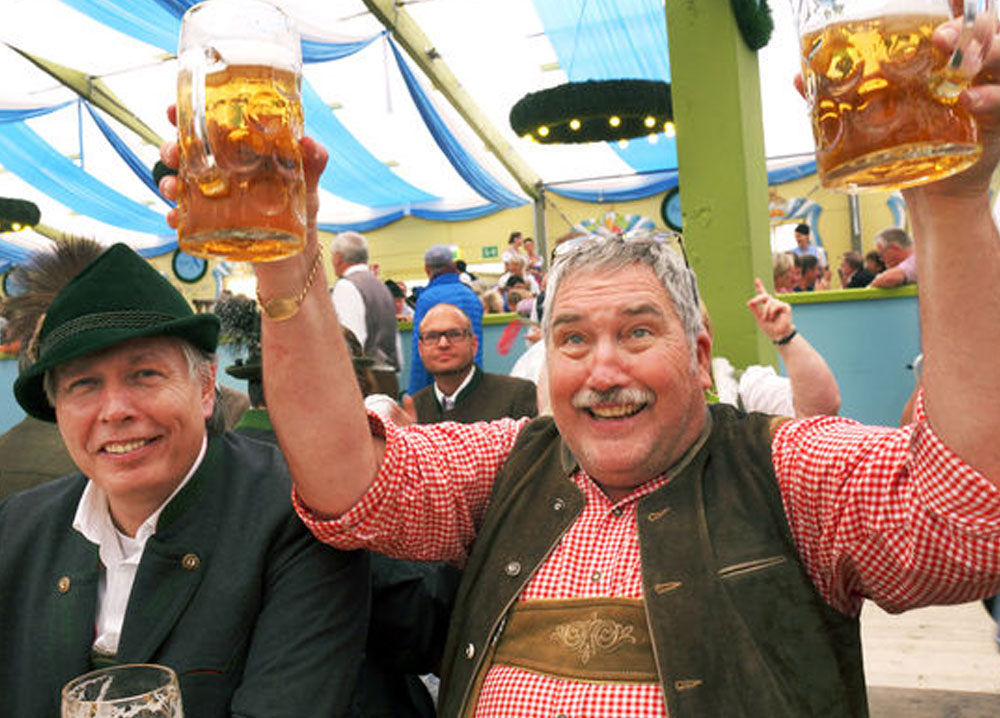
Munich Oktoberfest
Each year between six and seven million people consume 7 million litres of beer … at Oktoberfest. You’d think there might not be any beer left. And yet, there is more to come this year. Oktoberfest 2019 will begin at 12pm on Saturday 21st September and end on Sunday 6th October, 2019. How did it all start? Like many other festivities in Europe, Oktoborfest wasn’t initially designed for beer lovers but to celebrate an important royal event. In 1810, Crown Prince Ludwig, later to become King Ludwig I, was married to Princess Therese of Saxony-Hildburghausen. The citizens of Munich were invited to attend the festivities held on the fields in front of the city gates to celebrate the happy royal event. The fields have been named Theresienwiese (Theresa’s fields, literally) in honor of the Crown Princess ever since, although the locals have since abbreviated the name simply to the Wies’n.
Today, Oktoberfest doesn’t have much to do with the royals. However, it’s a heck of a grand event. Two specific times to consider attending Oktoberfest are the opening ceremony and the closing ceremony. Both are spectacular in their own ways and equally tough to get into (but both worth their weight in schnitzel). Oktoberfest 2019 will also have all the signature Oktoberfest special events like the costume parade, family day, traditional Bavarian concerts, and more. Plan your day – it will help you navigate the event better making your day in Munich so much better.
A litre of beer at Oktoberfest will cost you a little over 11 euros (without tip) which per standard glass in Aust might be around the same price as a city pub. Menu options and prices at each tent vary but expect to spend between 7€ – 22€ on a meal with a ½ chicken being around 11€.
For those of you who are looking for alternatives to a crowded Oktoberfest, there are a myriad of things to do in Autumn. How about surfing smack in the middle of Munich?
Munich River Surfing
This is the Eisbach, a small channel of the Isar River that runs through Munich’s big, central park. Every day, more than one hundred aspiring river shredders line up to surf the continuous, ice-cold wave that rolls through the channel all day long. Surfing on the Eisbach is less dynamic than ocean surfing, constrained as it is to a small place. But on the flip side, it’s much more predictable than the ocean, and the surfers know how to work its different sections. It also makes for a much better spectator activity than ocean surfing. Whether you surf or don’t, this is a great entertainment here.
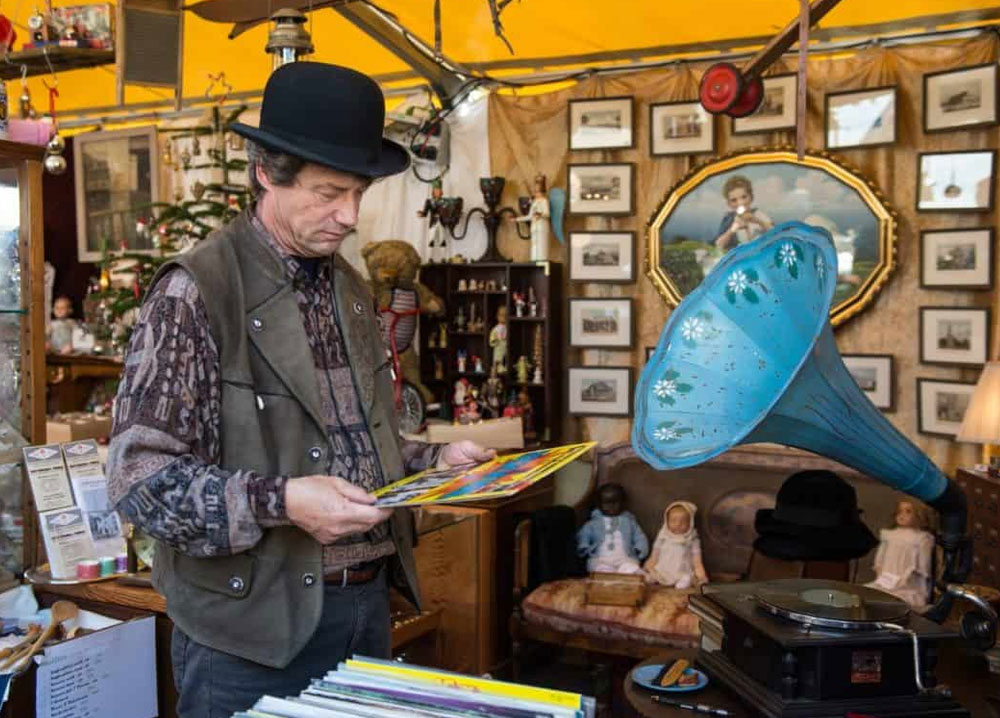
Autumn Auer Dult
As Oktoberfest dies down, the city barely pauses to catch its breath before heading to Auer Dult. The Auer Dult is considered to be the largest crockery market in Europe, first held in 1310. This event is part market and part excuse for lashings of good food. Must-try snacks include Flammkuchen (think pizza meets pitta bread, but with a creamy base), and the stecklerfisch (fish that’s been spit-roasted on an open flame). Taste different food, wander around the many stalls selling everything from traditional kitchen fare and household items to antiques and dodgy taxidermy and enjoy the local atmosphere.
After all the shopping and entertainment, there is nothing like a good Bavarian beer. Two beer gardens on the eastern edge invite the guests to squench the thirst.
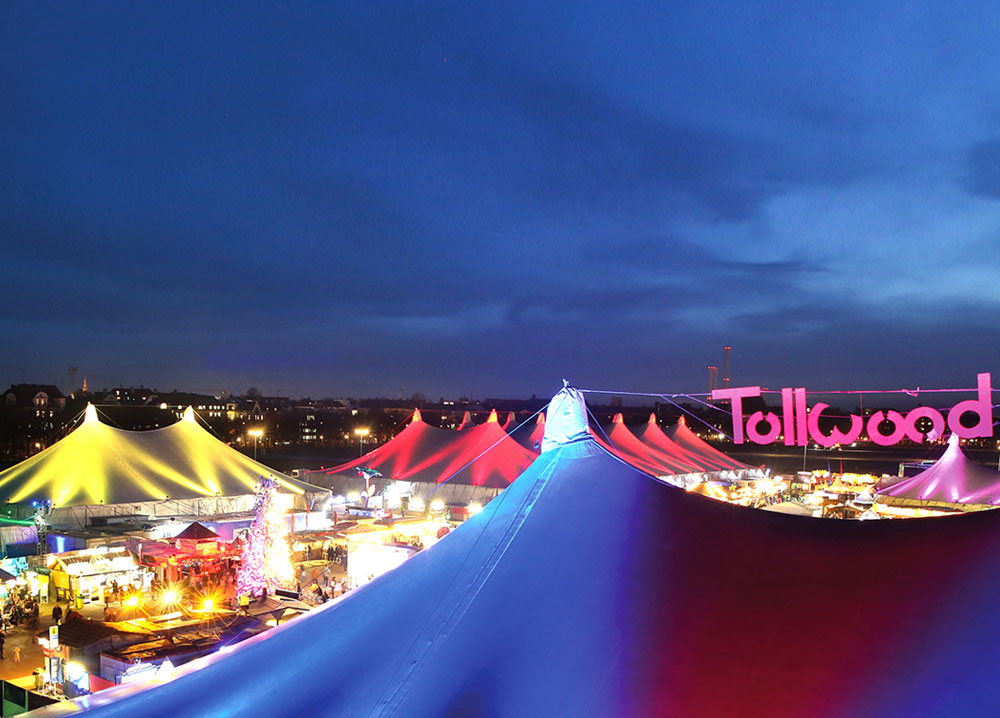
Winter Tollwood
As the nights draw in and temperatures begin to dip again, Munich stands firm against the cold… with a little help from some Glühwein. The end of November marks the start of Winter Tollwood. The popular festival’s winter edition includes an indoor market, vegetarian food tent and an incredible range of cocktails: try a hot Mojito!
This isn’t just eating and drinking but also shopping. The goods on offer include embroidered handbags, fair trade clothing, jewellery, pottery and plenty more. Forget Amazon: Winter Tollwood is a perfect market for Christmas gift browsing.
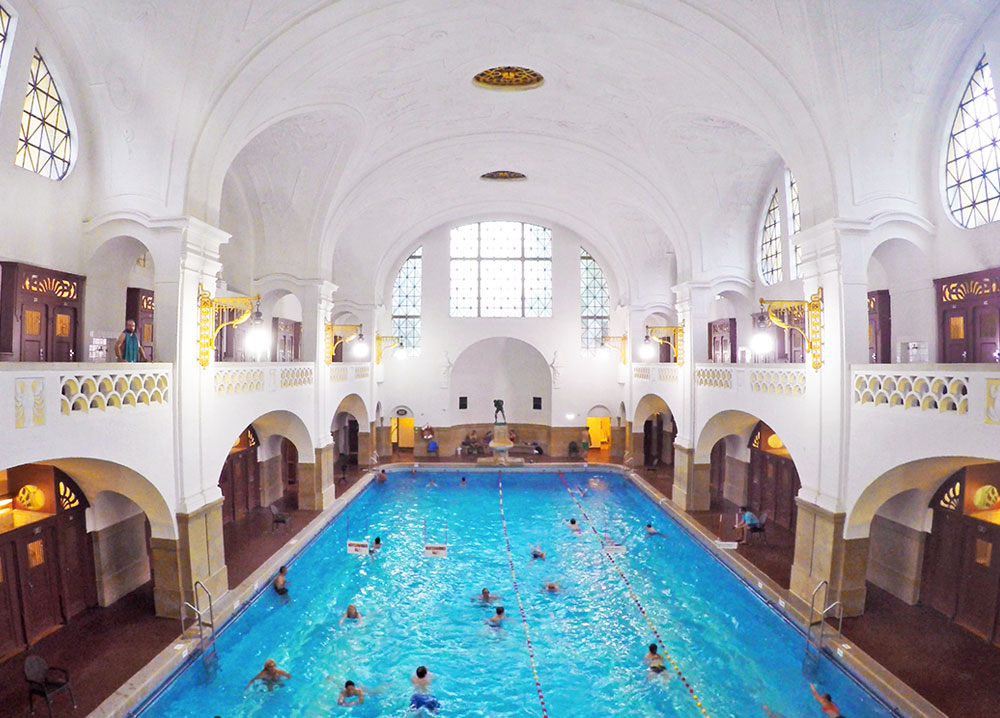
Bathhouse Culture in Munich
Munich offers a whole range of different saunas. You can experience a sauna in style of the Roman-Irish sweat bath in the Müller’schen Volksbad. And there are also Finnish saunas with coloured light effects and a variety of herbal infusions.
The key to understanding the German sauna obsession and bathhouse experiences is the nation’s famously relaxed attitude to nudity, especially when associated with health. This open-minded attitude to the naked body started in the 19th century, when Scandinavian-style steam baths became popular; then, in the late 20th century nudity became widely accepted on beaches, in city parks and on walking trails. Recent years have seen a decline of nakedness in such outdoor settings, but the unadorned body is still the standard at bathhouses.
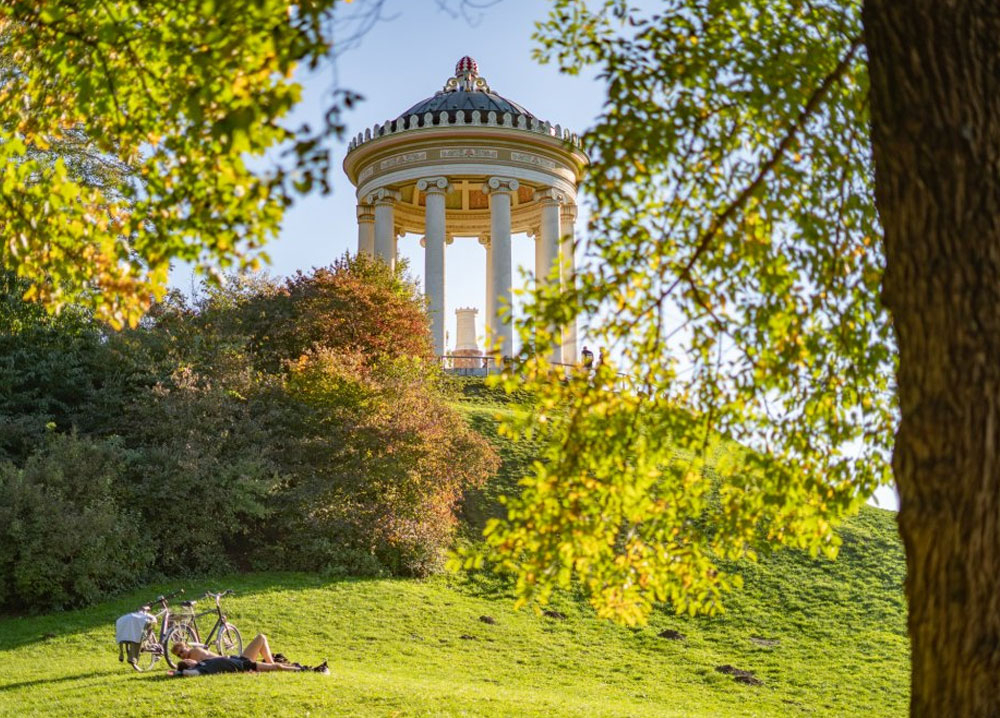
The Changing English Garden
And of course, Autumn brings change with nature metamorphosing in Munich and leaves turning gold. Visit the English Garden (Englischer Garten) that lies in the midst of bustling Munich and is one of the largest city parks in Europe. It’s even larger even than the New York’s Central Park. Our favourite spots for photos are around the Monopteros, at the little Schwabinger Bach waterfall and the Japanese teahouse.
If you are planning your German holiday in Autumn, give our team a call on 1800 242 353 – we’d be happy to help.
